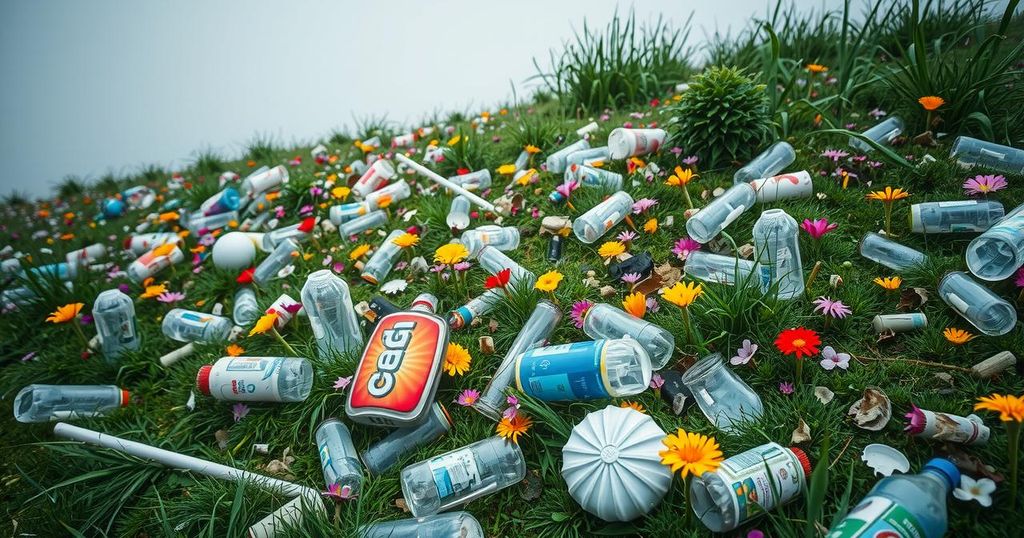Zimbabwe’s Battle Against Illegal Chinese Plastics Unveils Environmental Crisis
Zimbabwe is grappling with an influx of illegal, substandard plastic products primarily from Chinese manufacturers, leading to significant environmental consequences. The local enforcement of regulations remains weak, exacerbating pollution and contributing to wildlife threats. The entangled relationship between foreign investment and local governance complicates efforts to manage this pressing issue effectively.
In Zimbabwe, illegal plastic packaging, primarily sourced from China, has become ubiquitous, particularly in marketplaces like Mbare, where vendors frequently offer bags that do not conform to local regulations. Despite the known legal restrictions on plastic thickness, vendors like Tichaona continue to sell these cheaper alternatives due to high demand and minimal enforcement actions against violators.
Many consumers are unaware that the plastic bags they purchase fail to meet the legal thickness requirement of 30 microns, with some being merely 20 microns thick. This is supported by findings from Global Press Journal, which highlighted that both locally produced and imported plastics are regularly substandard, further endangering the environment.
The implications of using substandard plastics are dire; they contribute significantly to pollution, clogging waterways, and posing dangers to wildlife. Approximately 18% of Zimbabwe’s waste consists of improperly disposed plastic, leading to serious environmental issues, including animal fatalities from ingestion and increased flooding severity.
The Environmental Management Agency in Zimbabwe has instituted regulatory measures, including fines for non-compliance. However, industry insiders like Tatenda Murwira claim that inspections are nonexistent. Consequently, companies can operate without accountability, producing plastics that exacerbate environmental degradation without facing repercussions.
Although Zimbabwe continues to import plastic raw materials from South Africa, the influx of cheaper Chinese plastics has dramatically increased—a fivefold rise from 2012 to 2023. China, having greatly invested in Zimbabwean manufacturing under former President Mugabe’s tenure, now plays a dominant role, raising concerns about environmental policies being undermined by these foreign partnerships.
The relationship between Chinese firms and Zimbabwean politicians has created a troubling nexus of interests, leading to environmental regulations being ignored. The economic burden of debt on the country further complicates this dynamic, rendering Zimbabwe vulnerable to the influences of its primary foreign investors.
Efforts to combat the plastic crisis have included introducing taxes on plastic bags; however, these regulations are often evaded. Reports suggest that companies frequently avoid tax payment despite regulatory visits. In light of these challenges, the situation reflects a broader pattern of neocolonialism in Africa, where dependency on foreign investors exacerbates local environmental issues.
Zimbabwe’s battle against illegal Chinese plastics reveals a complex interplay of corruption, economic pressures, and environmental degradation. Despite laws prohibiting substandard plastic packaging, weak enforcement and demand for cheaper products perpetuate widespread pollution. The environmental crises stemming from this issue highlight the urgent need for effective regulation and accountability within the plastic manufacturing sector. As dependency on foreign investment grows, the challenges of balancing economic interests with environmental sustainability become increasingly critical.
Original Source: globalpressjournal.com




Post Comment